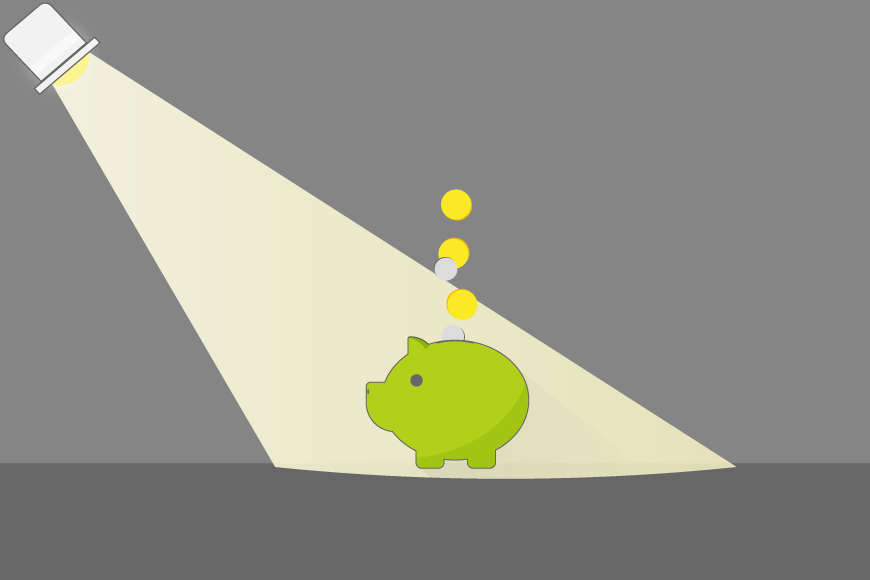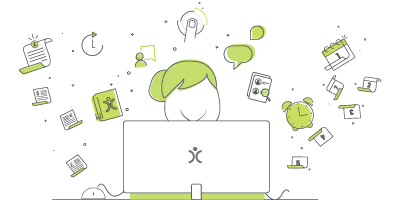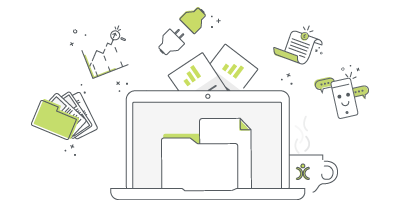The Question of CRM Price
7 Jun 2021
When you’re starting to shop around for a CRM system for your business, there are three questions you should be asking yourself:
CRM Price – how much will it cost to initially set up and then what are the ongoing costs to maintain your CRM?
Pain Points – which problem areas are you hoping to resolve in this new implementation of a CRM solution?
Long Term Strategy – are there any other long-term goals to consider? For example, bringing other departments on board, or extending the range of features being used.
How do these fit together?
In reality, these aren’t just questions you need to answer. They are the pillars upon which your CRM project will rest, from decision making through to implementation.
- If the CRM price is too high, it doesn’t matter if it is a perfect fit everywhere else, you won’t be able to afford it.
- If the system doesn’t meet your team’s needs, the cost is irrelevant as you won’t get the results you need.
- Finally, you may be conscious of the fact that whilst the other two are perfectly in balance (i.e. a system that ticks all the boxes and comes at the right price), you know your business will outgrow it within a year. That short term vision ignores the bigger picture and will work out more expensive or painful in the long term.
All three have to work in harmony or the whole process falls down.

Do we have what it takes?
We don't restrict which features you have access to in OpenCRM based on how many users you have. You get everything right out of the box. Click to find out if we've got the features you need.
find out morePricing under the Spotlight
In this blog, I’d like to focus on the CRM Price element, as it is where a lot of businesses first start on their CRM journey. It also, in my experience, can have a huge impact on the way the system will fit your business…and for how long.
Price in general is an interesting discussion. Regardless of where you look, the disparity in pricing can be astounding. Take for example a bicycle. You could buy one for £50, or you could spend eye-watering sums on a state-of-the-art machine. On the surface, both will get you from A to B, and to the casual observer they might even look pretty similar. But the person paying the premium rate is sure to what they are doing and will have their reasons.
Software operates in a similar vein. You have the budget end of the market where you even have free solutions available. Flip to the other end of the spectrum for premium options. So how do you know what is right for you?
The Low End of the CRM Marketplace
At the budget end of the pricing spectrum are the systems that always seem just a little too good to be true. Maybe they’re just a few pounds a month (or they might even be free) and, at first glance, they seem loaded with features.
Most of these systems offer basic Contact Management tools, with usually something else thrown in. They might give you the ability to record individual people, link them to a company, and maybe define the relationship between the two.
A lot of these systems will also give you some basic Task Management, so you can record who you called and when. You can probably also email them, but that’s really where these budget end CRM systems tend to stop.
Quite often, these low per use priced systems are an “entry” level to a far bigger CRM. Salesforce in particular uses this method. Something of a try-before-you-buy type approach.
These one-size-fits-all systems don’t really allow for much flexibility though. Most businesses strive to offer something unique, so you will need tools you can make your own. One of our mantras here is that you should streamline the CRM to suit your business, not the other way round.
There you have the budget end of things. An interesting way to dip your feet into the world of CRM without worrying about the price tag, but not ideal if your requirements go beyond the basics.

The salesforce alternative?
There are a lot of a CRM providers out there and it can be difficult to know how one compares to another. Click to find out more about how we stack up against the competition.
find out moreWhen the CRM Price is High…
At the other end of the CRM marketplace, you have the all singing, all dancing CRM solutions. They do everything and more…with a premium price-tag attached.
That pricing structure can quickly add up. Firstly, you have the expensive price per user subscription. Often this is charged annually, resulting in a hefty bill rather than one that can be split across the year. Secondly you are likely to encounter further charges for customisation, training and sometimes ongoing support.
If you think back to those three points I mentioned at the start – where does the long-term strategy fit in? If you are stretching the budget as it is, you are unlikely to have the resources available to scale up when you want to bring other departments on board.
It’s a minefield, but a lot of companies are drawn in thinking that they have to pay the big bucks to get all the fancy features. But it’s just not sustainable for them year on year.
Once again looking back – focus on those pain points you want to resolve. Those added extras seem very nice, but they are not part of your key requirements. All they do is bump the price up without offering benefit to your organisation.
The CRM Price for your Budget
We’ve talked about it in other blogs, but I’ll mention it again here: you have to work the following things when looking for a CRM system:
What do you need?
Are you looking for a system to address a specific issue? Perhaps to give you a more efficient sales pipeline? Or do you need something that encompasses more departments? The nature and size of your business are likely to be factors in determining answers to these questions. When shopping around, it is important to keep that list of requirements at the forefront. That will save you from being blinded by the bells and whistles that look great but ultimately don’t meet or benefit your needs.
What is your Budget?
If you know those two things, you’re ready to start your search properly. The budget itself can be hard to determine. The CRM price tag is an interesting one. Initially entails an additional outlay for your business. But the plan behind implementing a new CRM is that is makes you more efficient.
Efficiency equals streamlining, equals saving money. As an example – if your sales people spend the end of the month creating a report, for you, this is likely to take several hours, every month. Multiply that by the amount of salespeople you have, and that can quickly build up. Compare that to a scheduled report that needs to be set up once, and runs like clockwork for the duration of time specified. All of a sudden, your CRM has generated a saving in work hours of many hours a week. That is aside from the human error that could occur when setting up a report manually.
What you can do is to look at those potential savings you can make in the different parts of the business. That gives you an idea of a budget that can be made available, once the system has been implemented. All of a sudden, your CRM price is based on tangible data, rather than a finger in the air judgement.
The System to fit the Budget
Once you have made an honest assessment of your requirements, you can see if the systems you have in mind fit the bill. For example, do you need a system that can do marketing, ticketing and event management all in one? Do you need to be able to configure as much workflow, or action plans as possible? Make sure that – even if you are not planning to use all these features in “phase one” of your implementation – they are available when you want to extend your use of the system.
Once you have got those decisions in place, you can focus on getting the system to work for you. Work out your strategy to get the system up and running, data imported and your Users trained, so you can make the most out of this essential business tool.
My role is to build our Customer Success team and I work with our clients and prospects helping them get the most from their subscription – it is a fun challenging role as no two days are the same. When not in the office I’ll be either making a noise on my guitar or getting my trainers on for a run out in the Yorkshire Dales, North York Moors or the Lake District.